Unpacking The Shack: WM Paul Young Interview
Lynn Williamson
Bestselling work of fiction, The Shack - with it’s themes of forgiveness and grace, attracted widespread praise while its imagining of the Trinity resulted in much controversy.
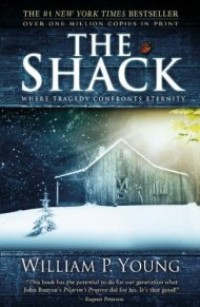
First time author William P. Young originally wrote the book for his grown up children, and printed just 15 copies. Today over 15 million copies have been sold and a follow up 'Cross Roads' has just been released.
Why, from your perspective, did some people call The Shack heretical?
"They are my people; I grew up with them. I’m a protestant evangelical fundamentalist. What it did was jar some of their paradigms. The angriest people didn’t read it. Just sayin’.
I'm the guy who wrote the book you're mad about."
I had my first protestors in Orlando, Florida with the bullhorn and the picket line. I was thinking, ‘it’s 100 degrees out there and they are working up a sweat! It wasn’t long ago I was cleaning toilets and now I have protestors. How cool is this?’ So I’m handing them bottles of water and one of them says, ‘Who are you?’
I said, ‘I’m the guy who wrote the book you’re mad about.’ So we get talking and I find out not one of the protestors had read it. So we talked for 15 minutes and as soon as I walk away they are on the bullhorn saying, ‘This violates the principles of God’.
And I’m saying, ‘Look at us human beings: it’s so much easier to be right than to love."
Do you enjoy the controversy?

"I like the controversy because I think it becomes part of the conversation. That’s the thing about The Shack; it gave people a language to talk about God and it wasn’t a religious conversation.
It gave people permission to talk about their great sadnesses and their questions because the book is full of human pain and wonder and questions. That became such a beautiful thing."
Can you explain more about this personal metaphor running through The Shack ?
"The shack is the house on the inside that people will help you build and a lot of us didn’t get good help. Sexual abuse is a part of my childhood somewhere close to five. That’s why you have a loss of children around five in the books.
Then religion teaches you to hide it all and create a façade that you can paint to the expectations you’re picking up from people around you as well as the religious expectations about the character and nature of God.
All of these things I’m in the process of trying to work this stuff out. As much as I would like extreme soul makeover - where God sends us to Disney world and fix us before we get back, it’s not the way it happens.
He heals you because he loves you... and he invites you to play."The intricacy and the inherent beautiful fragility of the human soul is such that it is uniquely damaged and only God knows how to heal it, and it’s going to take time.
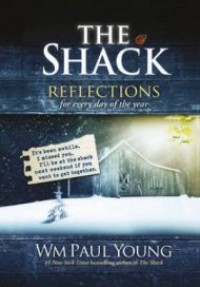
God doesn’t become an abuser for our own good. He doesn’t reach in and fix it apart from our participation, and that goes back to relationship. He doesn’t even heal you because he wants to use you. He heals you because he loves you and he invites you to play because it’s about a child parent relationship."
Some would say it’s a miracle you sit here today a Christian
"Well define Christian and then we can talk about it."
Would you not call yourself a Christian?
"I would. Depending on how you would define it."
Well some would say it’s a miracle that you hold onto your faith.
"Absolutely. And that’s part of the beauty of the relentless persuit of 'The Hound of Heaven'. I have a lot of reasons why I shouldn’t.
It’s like Dawkins and Hitchens being mad at God. Fundamentally I agree with them. They don’t believe that the God they are mad at doesn’t exist and I don’t believe that [that] God exists either. A lot about the religious personification and personifications and expressions of God I think are totally false."
People have written entire books responding to 'The Shack'. Which have you read and what do you think of them?
"It wasn’t too long when two books came out simultaneously: one by Roger E Olson and one by Randal Rauser [both] called Finding God In The Shack. Both were largely very positive and supportive.
If you’re going to read a book, tell me first all the things you agree with and touched your heart and all the things that transformed your thinking. When we’re done with all that we might have time for all the things you disagree with.
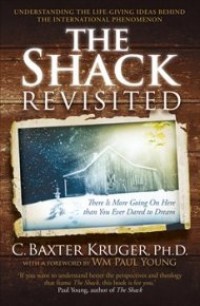
But it seems like - especially in religious circles and Christian circles, we want to first talk about the things we’re opposed to. That means we have to categorize that person. We can call them emergent or neo orthodox or someone who feminizes scripture. There’s the category, let’s stick them in the category then just blow up the box and him along with it.
It’s very different for people to sit face to face and talk to me as a human being than it is to deal with me as a categorical, ideological set of presuppositions. There is this tension that exists especially in the Christian community.
The book that is the best out there without any question is Baxter Kruger’s, which is called The Shack Revisited.
The byline is something to the effect of there’s way more going on here than you imagined. Baxter and I have become friends and I wrote the foreword. It’s a stunning beautiful exploration of the theological themes. Basically he’s teaching the theology in which I wrapped fiction around."
So were you writing theology in the book?
"I went to seminary and Bible school and I’m raised a missionary and preacher's kid so theology is embedded in me."
Some people defend the book against critics by saying, ‘It’s just fiction, it’s not theology’. But, as you say, theology is embedded in you, so that’s not a fair comment is it?
"No. But it is fair to say it’s not systematic theology because I don’t want to write systematic theology, and it’s fair to say it opposes my theological presuppositions.
If you’re post Calvinist modern evangelical, this is going to tamper with some of your sensibilities just by virtue of what it is. So some of that reaction - response, is merited. It’s not like this is a neutral piece of work.
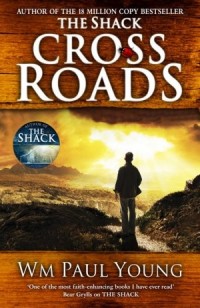
If you’re committed to penal substitution and limited atonement, you’re going to have a problem with my book - rightfully so, and I’m alright with that. I’m not there. I grew up there but I’m not there now."
If you knew controversy would erupt would you change?
"Yes, there’s one mistake in the book."
Just one?
"You can always write things better and make things clearer. For Jesus to say, ‘I’ll go down any road to find you,’ that’s not a mistake. That’s absolutely clear incarnational: 'I’ll leave the 99 to find one.' People’s paradigms switched it in their minds to think I’m saying all roads lead to God. But God said, ‘I’ll come down any road to find you.’ It’s very different! I want to say, ‘Just go back and read it!’
Imagery doesn’t define God, it helps us understand the character and nature of God.
The mistake in the book is where Mackenzie goes back in the shack and he looks over to where Missy’s bloodstain should be and it’s not there. That’s a mistake; it should still be there. Just because you work through your damage and your pain and your losses doesn’t mean the evidence of it disappears. There are still nail scars on Jesus’ wrists."
People were upset that God the Father was portrayed as a black woman in the book. But did they miss the point? Were you trying to make the point that God is neither male nor female, but spirit?
"Absolutely, I did it for a few different reasons.
Imagery doesn’t define God, it helps us understand the character and nature of God. That’s why there’s imagery all the way through scripture: like rock, fortress, strong tower, shield, mother hen, woman who loses a coin, a man who finds a baby girl laying in a ditch.
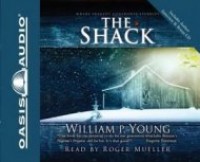
We forget [that] one of the things Jesus is very clear about is: ‘I don’t do anything unless I see the father doing it.' What is he doing? He’s kneeling down and washing your feet, he’s putting his arm around the leper, he’s talking to the woman who's an outcast.
We in the West have created a distinction between the character and nature of the Father and the Son - God is not schizophrenic. Part of it was to tamper with those paradigms and to say orthodox theology is God is neither male nor female; God is spirit and God will come to you in a way you can understand." - Sam Hailes
Latest Blogs

Gifts
Finding Your Symbol of Faith: A Guide to Christian Cross Necklaces
Looking for the perfect symbol of faith? Explore our guide to Christian cross necklaces, from rustic wooden designs and sturdy men's chains to elegant silver pendants.

Gifts
The Best Christian Gifts for Under £20
Looking for a meaningful gift that won't break the bank? Explore our guide to the best Christian gifts under £20, from inspiring journals to beautiful home decor.

Gift Guide
15 Confirmation Gift Ideas for Boys and Girls
Celebrating a confirmation? Discover 15 meaningful gift ideas for boys and girls, from youth Bibles and jewellery to inspiring journals and keepsakes.

Bible
30+ Powerful Quotes About the Bible (For Inspiration in 2026)
Looking for inspiration? Discover a curated collection of the most powerful quotes about the Bible, from famous historical figures to modern theologians and Scripture itself.

Bibles
What is the "Standard" Bible for Christians?
Is there an "official" Bible that all Christians use? We explain the difference between the NIV, KJV, and ESV, and help you find the standard text for your church or personal reading.

Bible
"I Keep Failing to Read the Bible" – 5 Tips to Make the Habit Stick
Do you start a Bible reading plan only to quit a few weeks later? Stop the cycle of guilt. Here are 5 psychological tips and practical changes to help you build a Bible habit that actually lasts in 2026.
